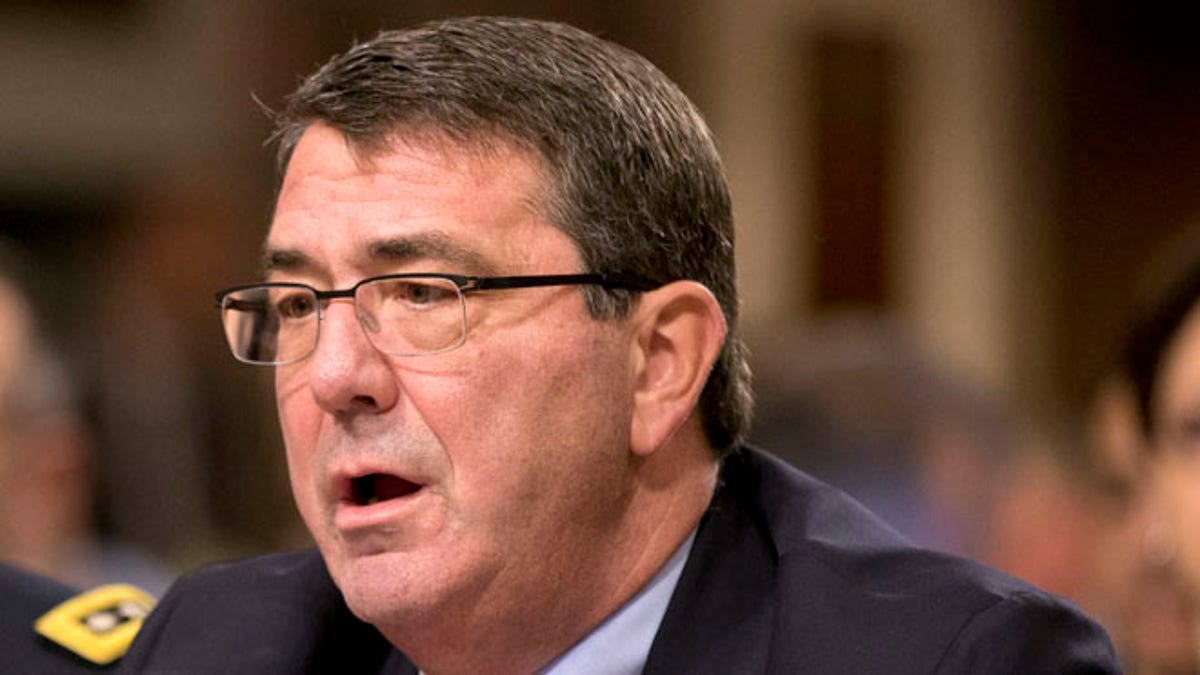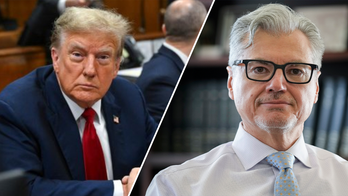
FILE: Feb. 12, 2013: Ashton Carter testifies on Capitol Hill, in Washington, D.C. (AP)
In typical Washington Beltway form, an unconfirmed news report Tuesday morning that President Obama had picked Ashton Carter to be his defense secretary later was repeated by a top Republican senator to another news agency, which then urgently reported it as fact -- sourcing the senator.
What Fox News can report is that Carter is a leading contender to replace Defense Secretary Chuck Hagel. But it's unclear whether he is the final pick, and it appears lawmakers have not yet been notified of his selection.
CNN initially reported that Carter, who was deputy Defense secretary from October 2011 to December 2013, is the pick. The Associated Press then quoted Sen. James Inhofe, R-Okla., as confirming the selection.
When reached by Fox News, however, an Inhofe spokeswoman said the senator was merely briefed that "CNN is reporting that it is Ash Carter but the committee has not been notified."
Hill sources, when contacted by Fox News, could not definitively confirm Carter, 60, is the pick.
And White House Press Secretary Josh Earnest said that while Carter is widely reported to be on the "short list," he could not provide further details.
"I don't have any personnel announcements to make today," he said.
If he is indeed nominated, and confirmed by the Senate, Carter would be Obama's fourth Pentagon chief in his roughly six-year administration. The development comes eight days after Hagel abruptly resigned under White House pressure, after less than two years on the job.
Carter has extensive experience in the national security arena. Carter's former role was essentially that of chief operating officer. Before he served as deputy Defense secretary, he was the Pentagon's technology and weapons-buying chief for more than two years.
During the administration of President Bill Clinton he was assistant secretary of Defense for international security policy. Before that he was director of the Center for Science and International Affairs at Harvard University's John F. Kennedy School.
Carter has bachelor's degrees in physics and medieval history from Yale University and received his doctorate in theoretical physics from Oxford University, where he was a Rhodes Scholar.
In national security circles Carter is closely associated with a concept he and former Defense Secretary William Perry championed in the 1990s. They called it "preventive defense." Its basic premise is that in the aftermath of the Cold War the U.S. could forestall major new security threats by using defense diplomacy - forging and strengthening security partnerships with China, Russia and others.
Carter's view of U.S. defense priorities appears to fit well with the Obama agenda, including better minding of defense alliances and partnerships in Asia and the Pacific, as well as more attention on cyber-defense and countering the spread of weapons of mass destruction.
In remarks in July 2013 at the Aspen Security Forum, Carter said the country was ready to move beyond the wars in Iraq and Afghanistan and to look harder at future threats, including cyber attacks. That was one month before Obama announced the start of a bombing campaign against the Islamic State group in Syria and Iraq.
Carter's point was that the Pentagon had entered an era of transition that requires fresh thinking. He said that effort could be stymied by across-the-board budget cuts in 2016 if Congress does not act to erase the budget-cutting law called sequestration.
"First of all, we need to get back to some issues that we've taken our eye off a little bit over the last decade," he said, adding, "We need to reinvest and get back in the game."
The Associated Press contributed to this report.




